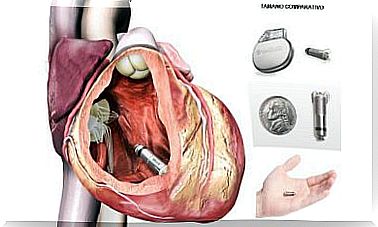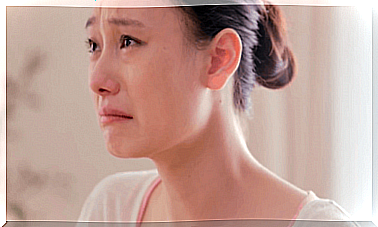How To Get Away From What Hurts Us
Some activities, environments or people become detrimental to one’s own well-being. But do we know how to get away from what hurts us? These harmful stimuli change us and move us away from who we really are: strong, brave, free individuals who, of course, deserve happiness.
Now, it is not so easy to distance yourself and break overnight with everything that violates our self-esteem. Although there are obvious sources of risk (fire, something sharp, a dark alley little frequented at night, etc.), it is not always so easy to identify the dangers.
In other words, even though the brain is programmed to recognize external threats and activate the flight response, it is sometimes more complex than it seems to give us the instruction to escape. This is especially so in the field of affective relationships.
But let’s see more slowly what alternatives are possible.
How to get away from what hurts us?

As social beings, we establish strong bonds with different people. However, sometimes some of them alter, in a certain way, one’s balance and well-being.
It is likely that we think that ‘whoever hurts us does not deserve us’. We know that it is easy to say, that deep down we are fully aware that whoever does not respect us does not really love us. But how do you come to admit it? How to react?
Below we propose 4 keys that may be useful in these cases.
1. Avoid those who prioritize themselves all the time
When we comment that some relationships hurt, the first thing we consider is physical violence. However, there is also that implicit, indirect and silent mistreatment that is just as harmful.
- Lack of empathy and social skills often hinders exchanges based on respect and reciprocity.
- Couples who tend to put their interests before those of their partner are also destructive.
- If understanding and trust are conspicuous by their absence, building healthy emotional ties will be unfeasible.
Therefore, in any of these situations, the possibility of putting distance will prevent greater consequences.
2. Letting go of gestures that cause pain
Often times it is no longer just what someone says, but how they express and formulate it. Using a derogatory tone, raising your voice or making use of irony are unspoken aspects that attack the self-esteem of the recipient.
- If, for example, the communication that parents have with their child is deficient or authoritarian, the child’s self-concept and safety will also suffer.
- In turn, in friendships and relationships, the way we give information or pose a dialogue says more about us than the words themselves.
If we detect these gestures in our environment, perhaps the healthiest choice is to let them go and avoid future encounters.
3. Defend against what hurts us

We know how to react to a threatening physical stimulus, but doubts assail us when it is a social one that breaks us.
In addition, the damage is even greater if the protagonist is a family member or someone from our closest circle. What to do if a mother, a brother or a partner does not respect us?
- Limits come first. Dare to say no to what we do not like or dislike.
- Far from being a selfish act, it consists of informing those around us that we deserve consideration and that there are details that bother us.
- The essential thing is that, before this warning, the person reacts.
However, if despite having warned, everything remains the same, perhaps it is time to make a decision. Whoever hurts us voluntarily does not deserve us.
4. Loving each other is a way of getting away from what hurts us
Since it is about taking care of ourselves, let’s not expect people who, with their actions, despise or manipulate us.
- Only relationships that allow us to be who we are will make us grow, those in which we receive love and understanding.
- If we really love each other and want to protect our self-esteem, the bet is to put ourselves in first position.
However, distance is one of the strategies to preserve one’s emotional balance. In other words, limiting contact is a way to get away from those toxic bonds.
What will we do to get away from what hurts us?
With these brief keys we wanted to propose several guidelines to deal with cases in which something hurts us, especially if it is personal relationships.
Let’s remember: we are responsible, brave and we deserve to build our own happiness. The first priority is yourself.
Therefore, if we want to assert ourselves, perhaps it is healthier to dedicate time and attention only to those who respect and value us. Why wear ourselves out and suffer with the intentions of those who end up hurting us?









